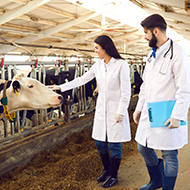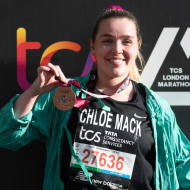Isoflurane is one of the most commonly-used veterinary anaesthetic agents.
Special manufacturer to partially fill gap in supply
A solution to the temporary isoflurane supply problem has been reached by the VMD following discussion with the BEVA, BSAVA and the AVA.
According to a press release, one special manufacturer is intending to produce isoflurane to fill or partially fill the gap in supply, which should be available in around three to four weeks time.
One of the most commonly-used veterinary anaesthetic agents, the production of isoflurane was temporarily ceased last week due to a mechanical problem on the production line. With limited stocks of alternative products - and the potential for supply to be restricted - clinics raised concern they would not be able to perform emergency surgery over the Christmas period.
Having looked into alternative sources of isoflurane, the BEVA, BSVA and the AVA put forward ways the VMD might be able to alleviate the risks to animal welfare.
In a press release, the organisations said the VMD ‘responded rapidly and positively’. David Rendle, a member of BEVA’s Health and Medicines Committee, said:
“BEVA has a close relationship with the veterinary pharmaceutical industry and will always work swiftly and collaboratively to help develop practical solutions to supply problems for our members.”
BSAVA President Philip Lhermette praised the VMD for such prompt action. He said: “The VMD listened to our concerns and acted immediately. By doing so they have addressed and helped to prevent any potential welfare risks associated with a lack of isoflurane.”
Carl Bradbrook, AVA junior vice president, reminded clinicians to “seek advice when considering the use of unfamiliar anaesthetic protocols.”
The associations stressed that the situation doesn’t give vets free rein to ignore the medicines legislation. 'The cascade must still be followed, and client informed consent obtained if an unregulated anaesthetic is used', they said.







 RCVS Knowledge has welcomed Professor Peter Cockcroft as editor-in-chief for Veterinary Evidence.
RCVS Knowledge has welcomed Professor Peter Cockcroft as editor-in-chief for Veterinary Evidence. 
